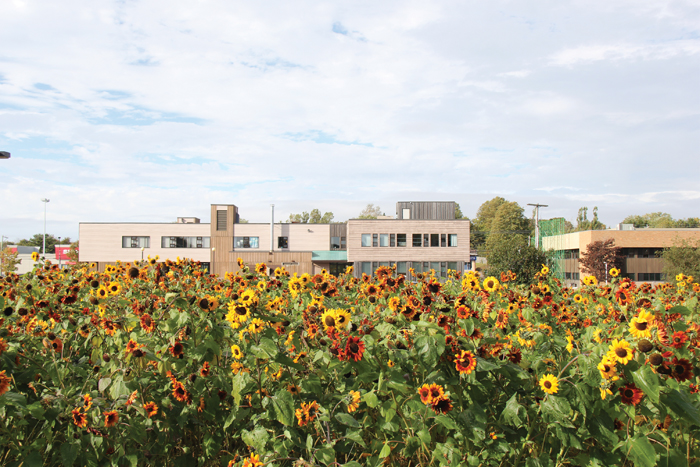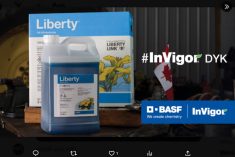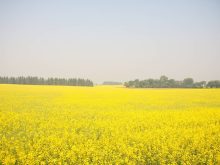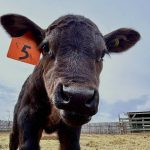The proverb “may you live in interesting times” is often attributed to a Chinese philosopher. The phrase is supposed to imply that it’s better to live a boring, tranquil life, than an interesting, but perhaps stressful, one.
But sleuth around a little on the Internet and you’ll find the so-called Chinese curse isn’t Chinese at all. In fact, phrases.org.uk attributes the first widely-known use of the phrase to a 1966 speech delivered by Robert Kennedy. The earliest written version of the supposedly ancient proverb dates to a 1936 letter from Joseph Austen Chamberlain, Nobel Peace Prize recipient and brother of British Prime Minister Neville Chamberlain.
Read Also
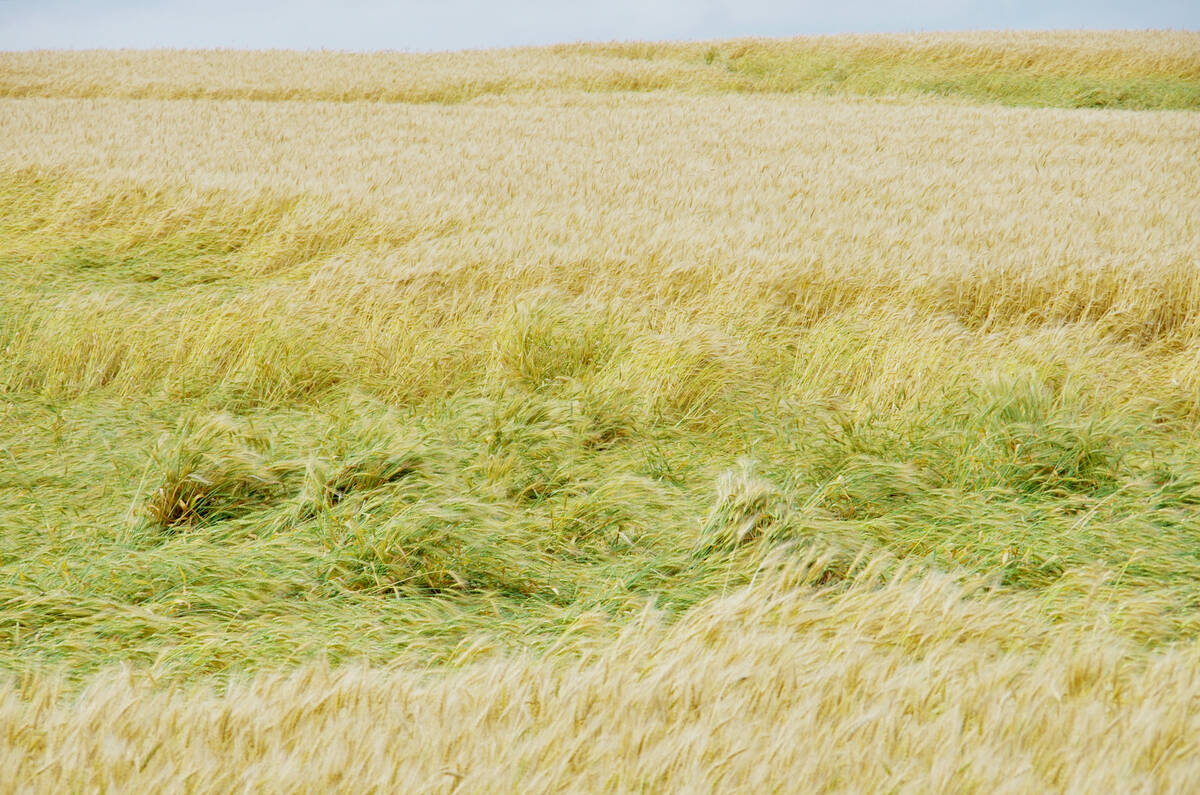
Cereal lodging isn’t just a nitrogen problem
Lack of copper in the soil can also lead wheat and other cereal crops to lodge during wet seasons on the Canadian Prairies.
Today’s farmers are living in interesting times. They find themselves on the front lines of complex environmental issues. And we need to do some serious excavation to unearth facts and truths in these messy issues.
In fact, “Dig Deep” was the theme of the Canadian Farm Writers’ Federation conference I recently attended in Charlottetown, P.E.I. And P.E.I. has an abundance of agricultural issues to dig into: deep water wells, land ownership restrictions, soil erosion, nitrate levels and fish kills come immediately to mind.
Science is often cited as the key to solving environmental and health issues. People on both sides of an issue will hawk studies that seem to support their positions. This means the rest of us have to delve into how the study was set up. What was the sample size? Was there a control group? Was the study peer reviewed? Does other research support the finding? What do other experts in the field have to say? Seems simple, right?
But researchers working in the field can’t isolate each factor that might affect a result the way they might in a lab. Often it takes a lot of careful research before they can even hope to draw definite conclusions. And in the meantime, people want to lay blame.
There may still be an urban-rural gap, but activists are more than willing to bridge it so they can monitor the agriculture industry. This summer Pesticide Free P.E.I. tried to recruit Islanders to photograph farmers applying fertilizer and pesticides. The group planned to post the pictures to social media, in the hope of catching on-farm violations, the Truro Daily News reported.
Pesticide Free P.E.I. is trying to ban, or at least limit, the use of both cosmetic and agricultural pesticides on the island. The group’s website states “pesticides on P.E.I. are a political, poisonous, hot potato.”
It’s easy to dismiss such groups with a roll of the eye and a comment about junk science. One can argue that their rhetoric is propped up by fear (of cancer, of environmental apocalypse) more than fact. There’s been a push for “agvocacy” — a buzzword meaning advocating for agriculture — and I can see why producer groups would want to stamp out the spread of misinformation about their industries.
But the agriculture sector can’t dismiss all of the activists’ concerns. The fact is that Prince Edward Island has dealt with several fish kills in its waterways — four in the last four years alone.
Natural fish kills can happen after spring spawning or when seasonal factors drop oxygen levels in the water. But sometimes agriculture is to blame, whether it’s nutrient loading or pesticide runoff. In fact, the Prince Edward Island Department of Agriculture and Forestry website states that since 1962, there have been 51 fish kills either proven or suspected to be caused by pesticide runoff, generally after a heavy rain.
The government has tried to cut fish kills by legislating 15 metre buffer zones next to wetlands, streams and rivers. Row crops aren’t allowed on land with a slope of nine per cent or more. And a Canadian Press (CP) piece reported the P.E.I. government had collected between $14,000 and $17,000 in fines from people violating pesticide-use laws last year.
Randall Affleck, farmer and National Farmers Union representative, was part of a panel at our farm media conference. He said he supports buffer zones, but added environmental problems are a societal issue.
“And one thing I’m not happy about is, in the end, the narrative is the farmer’s failed,” he told delegates at our farm media conference.
Right or wrong, though, farmers aren’t likely to find much public sympathy if they’re linked to environmental mishaps. Greg Donald, executive director with the P.E.I. Potato Board, told us that the general public has no patience for environmental issues such as nitrates and fish kills.
“But they also clearly indicated in that survey that they were willing to help pay for environmental initiatives,” he said. P.E.I. programs such as Alternative Land Use Services “actually pays farmers to remove sensitive land from production,” he said.
PEI farmers and others in the agriculture industry are on board, too. P.E.I.’s Environmental Farm Plan program leads the country in participation and program design, John Jamieson, executive director of the P.E.I. Federation of Agriculture, told us at the conference.
And Cavendish Farms recently anted up $100,000 to help purchase 96 acres of agricultural land that has been linked to fish kills in Barclay Brook, P.E.I. The provincial government paid the balance through a fund set up to buy land susceptible to erosion and runoff. The environmentally-sensitive land will be pulled from production and managed by a local watershed group.
When it comes to environmental issues, farmers and others in the agriculture industry are going to have to work harder than ever to keep the public on their side. Agvocacy alone isn’t enough. It needs to be backed up by efforts, such as the ones in P.E.I., to solve these problems. And hewing into those problems isn’t an easy task.
That proverb about living in interesting times doesn’t have to be a curse for the ag industry. It can mean more opportunities to work with the public on issues that affect all of us.


